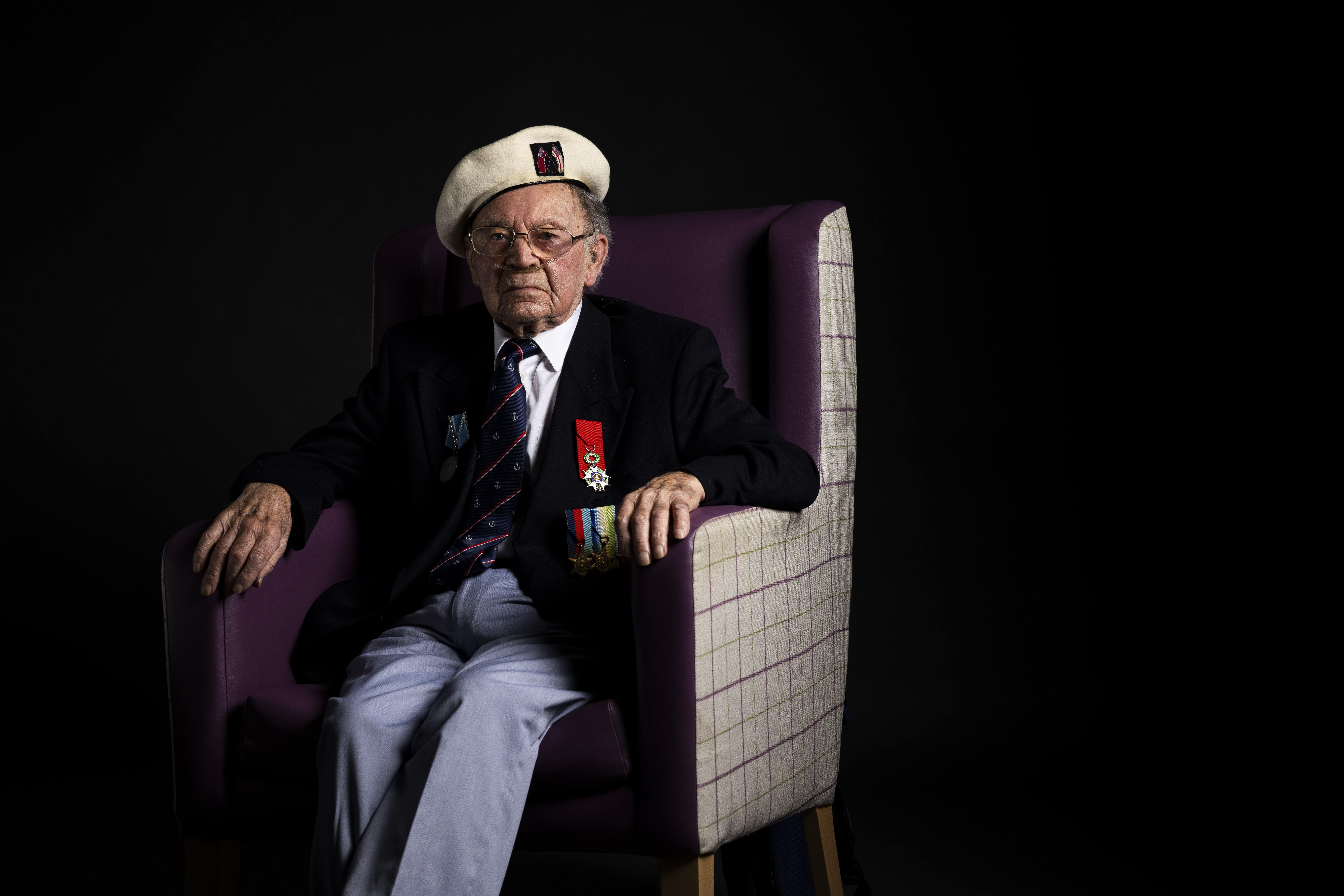D-Day veteran calls for sacrifice of life to be recognised by future generations
Albert Lamond, 98, took part as a Royal Navy seaman and said he has never forgotten the loss of life in Normandy.

Your support helps us to tell the story
From reproductive rights to climate change to Big Tech, The Independent is on the ground when the story is developing. Whether it's investigating the financials of Elon Musk's pro-Trump PAC or producing our latest documentary, 'The A Word', which shines a light on the American women fighting for reproductive rights, we know how important it is to parse out the facts from the messaging.
At such a critical moment in US history, we need reporters on the ground. Your donation allows us to keep sending journalists to speak to both sides of the story.
The Independent is trusted by Americans across the entire political spectrum. And unlike many other quality news outlets, we choose not to lock Americans out of our reporting and analysis with paywalls. We believe quality journalism should be available to everyone, paid for by those who can afford it.
Your support makes all the difference.One of the last surviving D-Day veterans has said the thousands of lives lost in the Normandy landings during the fight against the Nazis must never be forgotten.
Albert Lamond, 98, will mark the 80th anniversary of the Allied landings, which involved the Navy and RAF, in an event at the Veterans Village in Bishopton, Renfrewshire, run by the Erskine Veterans Charity.
On June 6 1944, D-Day, also known as Operation Overlord, marked the beginning of the end of the Second World War, as more than 150,000 Allied troops launched a massive beach assault on the coast of Normandy by air and sea.
It’s our duty to keep the past alive, so history does not repeat its darkest days
A total of 4,414 Allied troops were killed and more than 5,000 wounded.
Mr Lamond recalled taking part as an 18-year-old seaman, a year after joining the Royal Navy.
He said: “As one of the last few living witnesses of D-Day, I often find myself wondering about those I served alongside.
“I once had the chance to visit the Normandy beaches where so many brave souls fought – that experience will live with me forever.
“It’s vital we teach future generations the true cost of freedom and ensure they never forget the horrors we faced.
“The memory of all of those that served must be preserved, our stories must be shared when we are gone, and as a country we must educate to ensure that the world never sees a repeat of the events of World War II and D-Day.
“It’s our duty to keep the past alive, so history does not repeat its darkest days.”
Mr Lamond was a signalman on HMS Rowley, part of the 3rd Escort Group, when it was deployed to rendezvous with battleship HMS Warspite as it travelled to Normandy to shell German troops.
HMS Rowley’s role was to act as a first line of defence by circling HMS Warspite.
The crew were constantly watching for U-boats looking to torpedo the warship and had been told they would sacrifice their own lives if a torpedo was aimed at the battleship.
As a signalman, Mr Lamond was on the lookout from the bridge throughout the battle, with no cover to defend him – and he said he has never forgotten the young men who died.
He said: “We went up the Normandy coast when I was on the frigate, the HMS Rowley. The battleship Warspite’s mission was to soften up all the Normandy coast by shelling the Nazis but it was our duty to protect it.
“We were constantly getting fired at, the noise was like an express train flying right over your head. It was terrifying, we were expected to put our lives on the line.
“Our captain says, ‘If we see a torpedo going to hit the battleship the Warspite, we’ll nip in and take the torpedo’. We were simply there to defend others.
“The importance of the mission wasn’t lost on us – we knew what we were getting ourselves into.
“It was horrible. It lives with you forever. It has never gotten easier. There were hundreds of men going ashore, I can still see them.
“They went from the sea on to the beach and I saw them disembarking. They were being shelled at from all angles. Some of them never made it.”
He now lives in McKellar House at Erskine Veterans Village, and had a career on the railways after leaving the Navy.
Wing Commander Ian Cumming said: “It is truly an honour to have Albert at Erskine. He is a hero, who risked his life for our freedom, and should be seen as an inspiration by everyone.
“As we mark this significant anniversary, it’s crucial that we remember not just the sheer scale of what was achieved during the D-Day landings but also the personal sacrifices made by each individual involved.”